Strategies for daily off-grid living and working
Introduction
If someone would have told me that I would be part of the off-grid living movement a few years ago, I would have thought, they were joking. Nevertheless, remote working has been part of my life for more than seven years.
Internet is full with articles that weight the pros and cons of living off-grid and working remotely. However, they do it separately.
In this article, I will try to share my experience trying to make the most of off-grid living and remote working and how certain strategies have helped me to achieve this.
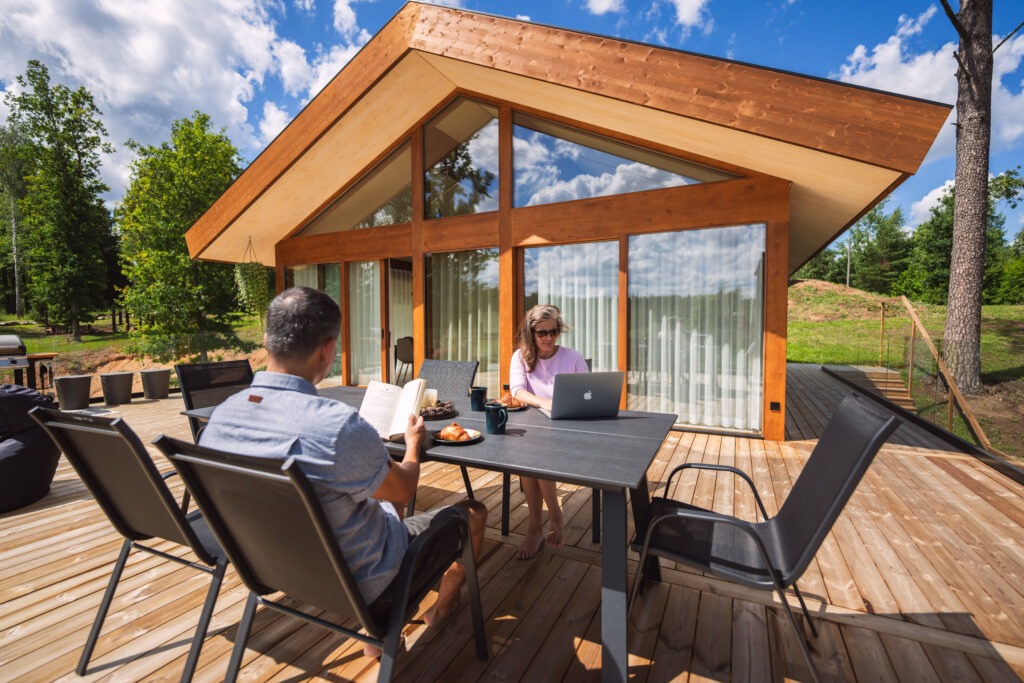
Proactivity is king
In previous articles, we have spoken about the benefits of working in natural environments, which are inherent to off-grid living. However, both living off-grid and working remotely require certain skills to make the most of them.
During my early university years, I read Stephen Covey’s bestseller “The seven habits of highly effective people“. Since then, the book has been part of my book collection and travelled with me across different countries where I’ve lived. I’ve re-read it about three times and the one thing that always stays on my mind are habits number one and two, which recommend “being proactive” and “starting with a goal in mind”.
Off-grid living requires proactiveness, as it is a lifestyle that allows people to have a very close interaction with nature and nature is dynamic. This means that there is always something to do and to be done, as the temperature, the rain, the wind, the presence of insects and animals plus the natural growth of plants and grass can influence what happens inside and around our off-grid house and have a knock-on effect on our daily routine.
My advice is therefore, to try to understand as well as possible the environment where your off-grid house is located. Try to learn as much as possible about the type of ground, trees, plants, and creatures that live there. It will open you to a new world (particularly, in case you’re an unfamiliar urban person, like me) and the more you learn the more you’ll get of your off-grid house and lifestyle.
Pay attention to changes in the environment as seasons change and think about how these could impact your off-grid house and remote-working routines.
As someone, who grew up in a big city, I see this not only as an opportunity to learn from nature, but also to increase my sense of mindfulness. After living off-grid throughout different seasons, I notice not only how the landscape around me changes, but also how my off-grid house looks, feels and even smells differently. Without fear of exaggerating, I can already feel how the air in August is changing, as if it was announcing that soon we’ll be transitioning to a season where everything will be different. Is it time for me to get new rakes and check that my off-grid energy and water management system are working flawlessly in preparation for a colder weather?
Also, as someone who struggles with hay fever, learning more about the existing trees allows me to prepare better, as I make changes in my diet (e.g., I stop eating foods that contain gluten. Try it!) and my daily schedule to cope with this condition while still enjoying being outdoors.
Prepare your
off-grid house
for the winter
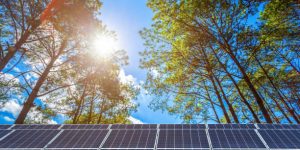
Understand the nature around your off-grid house
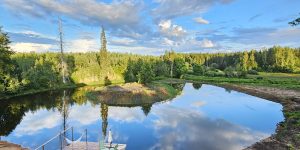
Learn from the
nature
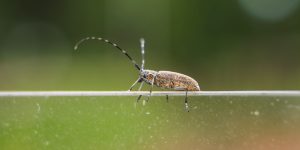
Less can sometimes be more
Both off-grid living and working remotely require a certain level of discipline and self-structure. This can sound scary for people who are not used to work independently and outside an office environment. However, it’s not as difficult as it sounds when every day, we put in practice the second habit “start with a goal in mind”.
In my case, my main goal is to preserve my off-grid house as a restorative living and working environment. This goal is underpinned by identifying and accomplishing smaller objectives in my daily routine – these can be work, family care, household or even personal-related.
One of the benefits of off-grid living is that it can boost mindfulness. In this respect, I’m more aware of what are the times of the day when I feel more energetic to deal with work that requires more of my intellectual of physical capacity and structure my day accordingly.
Also, I’ve learned to have a more realistic approach to working remotely and try not to underestimate the time and resources that completing a task would take. If a task is too big, I try break it down into smaller pieces based on a timeline, so that every day I can track my progress. This not only help me to meet my deadlines but also gives me a sense of achievement that boosts my motivation.
In summary, I’ve learned than less is more. The more selective I am, the more focused I become, and the better I preserve the restorative environment of my off-grid house.
Prioritise your tasks
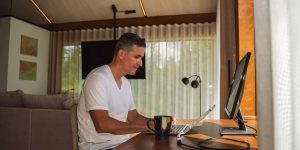
Set boundaries
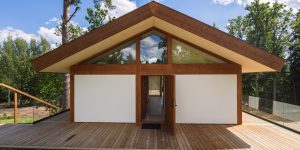
Manage distractors
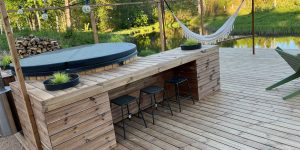
Set boundaries and stay healthy
As we’ve seen off-grid living and remote working are not for the faint-hearted, as both require proactiveness and learning how to plan, prioritise and execute.
Living off-grid and working in the middle of the nature is definitely inspiring and as we’ve seen in previous posts, it can boost creativity. That’s why musicians, writers and other creative professionals choose working in remote environments to focus on their new artworks. However, just like it happens to those that work from home there can be many distractors.
These distractors can be external and internal to our off-grid house. One of the most important external distractors that is not frequently mentioned is that in many cases, people who are unfamiliar with off-grid living think that living in the middle of the nature, and away from the city buzz, means that you’re not busy at all. As we’ve mentioned previously, this is far from true and therefore, it’s important to establish which are our boundaries with the people we interact with at work, just like we would do in an office environment, as well as with family, friends and neighbours.
Finally, dealing with internal distractors is a skill that many people had to learn working remotely after the COVID pandemic. In my case, my off-grid house is my personal playground, as it has a beautiful pond and an outdoors gym that I find too irresistible to miss out when the cold weather is gone. This means that I have to factor them into my daily routine along, with all my other work, household and family care commitments.
Luckily, my distractors are healthy habits, that allow me to clear my mind off-work and even have serendipitous moments, where I come up with new ideas or solutions for things that I feel stuck with. For other people who living off-grid, these habits can include going for hikes, mushroom picking or meditating.
In summary, setting boundaries combined with good habits, good food and good sleep help us to fully enjoy off-grid living while increase our work productivity. Finally, while living in a paradisiac spot in the middle of the nature can bring us a sense of calm and inspiration, it is important, at least for me, to maintain physical contact with people. In my case, spending some days back in the city provides me with that balance, while others simply prefer inviting friends over to enjoy their off-grid house.
Stay healthy
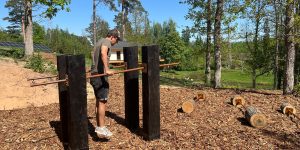
Connect with people
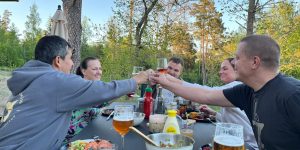
Rest
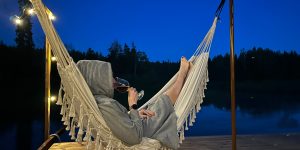
In summary
Off-grid living and remote working require habits associated with highly effective people.
The first habit is proactiveness, which help us to learn about our off-grid house and the environment around to anticipate things that must be done as seasons change and that could have an impact in our daily routine.
The second habit is to identify and prioritise daily tasks, as required by our work, our family and our off-grid house. Never underestimate time or overestimate your energy and resources. Less can be more.
Finally, dealing with distractors, staying socially connected as well as physically and mentally healthy are also habits that can help us to better enjoy off-grid living.
Please let me know you have any comments. I’d be very happy to learn from your experience!

